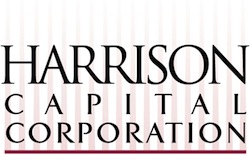Harrison Capital Corporation's Role
In a typical transaction, HCC's specific role as lessee advisor usually includes (but is not limited to) the following services:
1. Review Lease-Related Issues. In association with the lessee and its outside counsel and accountants, review and advise on tax and accounting issues; produce a range of economic analyses evaluating tradeoffs; and develop a detailed timetable for the transaction.
2. Develop Appraisal. Interview appraisers and report results; our evaluations take into consideration the experience, capability, cost and ability of each appraiser to arrive at supportable and agreeable conclusions. Direct specific appraisers to specific equity sources as appropriate to obtain the best deal for the lessee.
3. Design Transaction.
(a) Structure the Lease. Obtain appraisals as directed; perform lease vs. buy analysis; design optimal rent and debt structure after taking account of tax, accounting, legal and regulatory issues, and the lessee's method of analysis; structure transaction to meet and/or take advantage of IRS guidelines, maximize tax benefits to lessor, avoid tax problems (such as limited use property and Section 467) and maximize economic benefit to lessee.
(b) Work to Solve Accounting Problems. Develop and analyze alternative rent and purchase option structures designed to meet lessee's accounting goals.
(c) Mitigate Residual Risk. Within accounting limitations, design various options during or at the end of the lease to reduce the cost to lessee of reacquiring/maintaining the use of the equipment and to fix the cost of the financing. This would include establishing an early buy-out price and/or a fixed price purchase option at lease termination.
4. Prepare Private Placement Memorandum (“PPM”). With outside counsel, draft a detailed transaction description which would include not only the results of the transaction design discussed above, but also document favorable terms for the lessee with respect to such matters as insurance, tax and other indemnities, maintenance, and the calculation of casualty and termination values. The proposal shall be designed in light of the reasonable requirements of the equity marketplace.
5. Develop and Implement Strategy to Approach Market. Develop a broad list of potential equity investors and determine a targeted subset of potential investors.
Distribute PPM to an approved group of equity investors and structure and negotiate the economic terms either by sending a rental structure to the investors based on their parameters or by the potential investors submitting a self-generated bid; restructure each equity investor’s proposal to lower the lessee’s cost and meet cost-effective debt requirements.
6. Assist in the Negotiation of Terms and Conditions with Equity Sources. Advise with respect to modifications in terms and conditions suggested by equity source(s); propose restructuring to fit particular equity source(s)’ parameters and objectives; commit the equity source(s) to yield and after-tax cash rather than lease rate or present value; and check changes in the equity(s)’ numbers to protect against any undue increase in their yield or after-tax cash.
7. Assist in Approaching Lenders (if applicable). To the extent any structures developed require new forms of debt, assist in determining the best type of lender to approach and the best method of approaching that type of lender; attempt to design amortization structures for using such debt that reduce the lessee’s cost and meet the policy requirements of both the lender(s) and the IRS
8. Assist with Regulatory Presentations. Assist in putting together presentations or testimony to appropriate regulatory authorities, if necessary.
9. Advise on Choice of Technical Participants. Advise with respect to who should be retained and on what terms as owner and indenture trustees, special counsel for the debt, special counsel for the equity, appraisers and printers (if any) and devise strategies for controlling the cost and expenses of each of the above, and producing a smooth transaction.
10 . Advise on Documentation. Advise the lessee during document negotiations with particular emphasis on economics, market-reasonableness of lessor positions, and protection against lessor overreaching; assist in designing possible alternative solutions to any equity, debt, or lessee concerns that may arise.
11 . Review Final Settlement Numbers and Rate Adjustments. Check settlement amounts and any lease rate adjustments resulting from changes in delivery, closing, debt rate or other parameters to ensure that they meet the agreed-on economics of the transaction and will not produce any undue increase in the yield or after-tax cash of the equity investor; and attempt to control such changes in a manner that would lower the lease cost to lessee.
12. Review Post-Closing Administration. Assist in setting up proper files, including tickler files for security and income and sales tax filings; in interpreting the documents; and in making recalculations due to change in assumed debt cost, delivery date, expense cost, and any casualty, termination, change of tax law, indemnity, or other obligation.
As a final comment, it is hopefully clear from the above description of services that a prospective lessee is best served by retaining an advisor like HCC as early as possible in the financing process. In this fashion, the lessee will receive the benefit of our full range of advisory services and will ultimately obtain better financing terms.
CONTACT US for more information.
